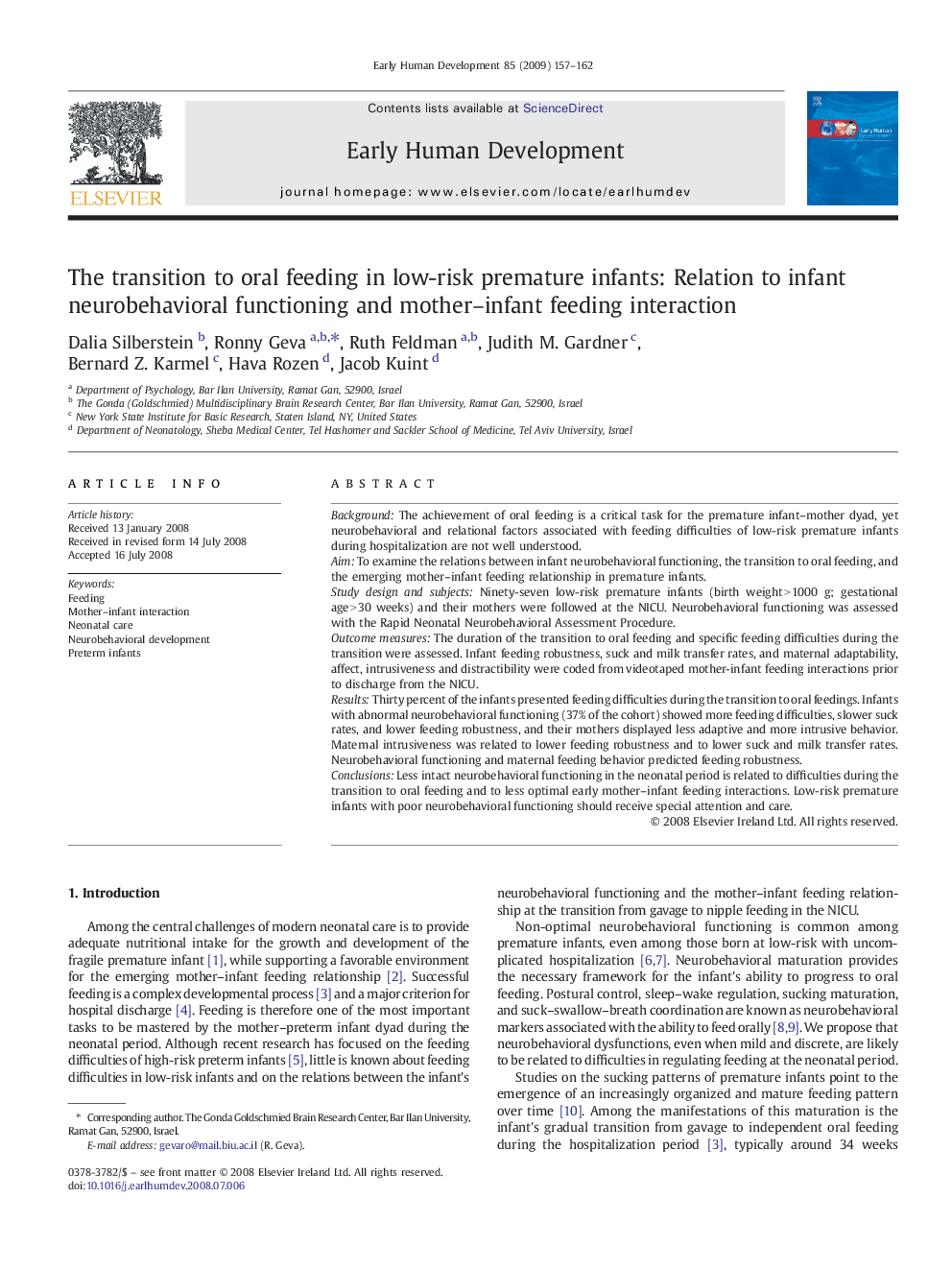| کد مقاله | کد نشریه | سال انتشار | مقاله انگلیسی | نسخه تمام متن |
|---|---|---|---|---|
| 3917894 | 1252153 | 2009 | 6 صفحه PDF | دانلود رایگان |

BackgroundThe achievement of oral feeding is a critical task for the premature infant–mother dyad, yet neurobehavioral and relational factors associated with feeding difficulties of low-risk premature infants during hospitalization are not well understood.AimTo examine the relations between infant neurobehavioral functioning, the transition to oral feeding, and the emerging mother–infant feeding relationship in premature infants.Study design and subjectsNinety-seven low-risk premature infants (birth weight > 1000 g; gestational age > 30 weeks) and their mothers were followed at the NICU. Neurobehavioral functioning was assessed with the Rapid Neonatal Neurobehavioral Assessment Procedure.Outcome measuresThe duration of the transition to oral feeding and specific feeding difficulties during the transition were assessed. Infant feeding robustness, suck and milk transfer rates, and maternal adaptability, affect, intrusiveness and distractibility were coded from videotaped mother-infant feeding interactions prior to discharge from the NICU.ResultsThirty percent of the infants presented feeding difficulties during the transition to oral feedings. Infants with abnormal neurobehavioral functioning (37% of the cohort) showed more feeding difficulties, slower suck rates, and lower feeding robustness, and their mothers displayed less adaptive and more intrusive behavior. Maternal intrusiveness was related to lower feeding robustness and to lower suck and milk transfer rates. Neurobehavioral functioning and maternal feeding behavior predicted feeding robustness.ConclusionsLess intact neurobehavioral functioning in the neonatal period is related to difficulties during the transition to oral feeding and to less optimal early mother–infant feeding interactions. Low-risk premature infants with poor neurobehavioral functioning should receive special attention and care.
Journal: Early Human Development - Volume 85, Issue 3, March 2009, Pages 157–162